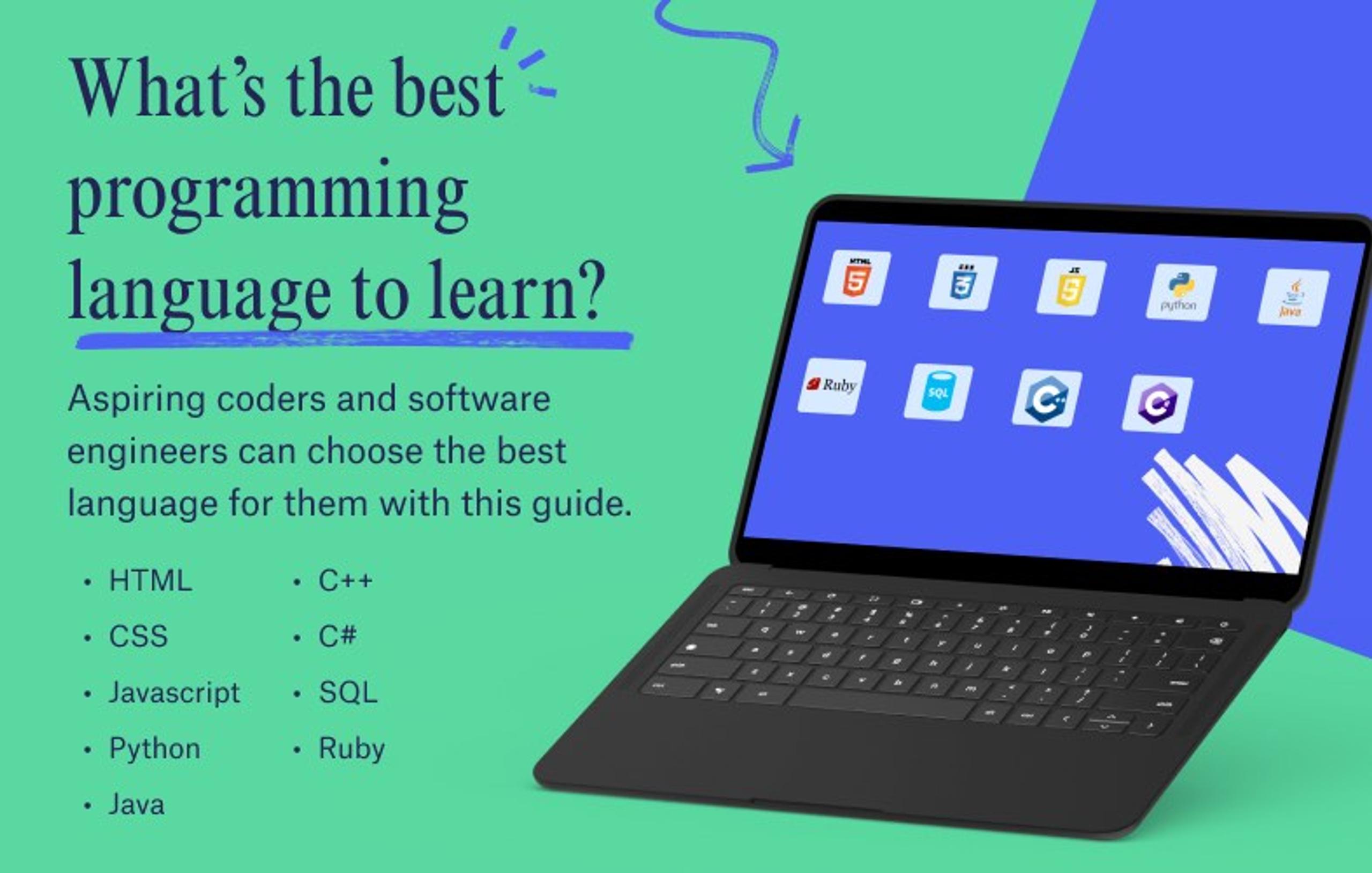According to Stack Overflow’s survey(opens new window), 59% of people that are learning to code study Python. It’s also the third most popular programming language for Software Developers. Many companies use Python to manage big data and create machine learning algorithms. As a result, learning Python can open the door to an in-demand, lucrative software engineering career.
You may have many questions before committing to learning Python, or any new programming language, including:
- Is Python hard to learn?
- How long does it take to learn Python?
- Is it worth learning?
- What can you build with it?
This article will cover those common coding questions and share tips on how to learn Python.
Is it worth learning Python?
Dutch programmer Guido van Rossum created Python in 1991. Even though it started over three decades ago, it’s still one of the most widely used programming languages today.
Many Developers and tech companies prefer Python because it’s easy for humans to read and they can use it to build scalable applications. Here are four benefits of learning Python in 2023.
1. High-demand
Companies of all industries and sizes—including Netflix, Amazon, and Reddit—use Python, so it’s in high demand. Approximately 45% of professional Software Developers(opens new window) use Python, and 47% of employers(opens new window) need staff with Python experience.
2. Flexibility
Python’s versatility makes it one of the best programming languages to learn for aspiring tech professionals. Learning Python doesn’t mean you need to pursue a job as a Python Developer. As for job prospects, Python skills are easily transferable, so you could work in data science, software engineering, or artificial intelligence for instance.
3. Six-figure job options
Not only are there many careers that need Python skills, but they also pay well. Mastering Python could help you land six-figure jobs without a college degree, such as:
- Python Developer: $114,000
- Machine Learning Engineer: $157,000
- Data Engineer: $128,000
- Full Stack Developer: $122,000
- Back-End Developer: $159,000
4. AI applications
ChatGPT, MidJourney, and other AI applications are booming. Reports forecast that the AI market will grow 13 times over the next seven years(opens new window). To support that growth, companies will need to hire more Python Engineers.
Python powers many machine learning and artificial intelligence technologies, and learning it could set you up for an in-demand career in machine learning. In fact, Machine Learning Engineer has been the fourth-fastest growing career(opens new window) for the past five years.
Examples of Python
Companies typically use Python to develop back-end services. These services refer to server-side or behind-the-scenes functions, like retrieving information from databases and authenticating login information. Businesses can also use Python to perform data analytics and learn more about customers.
Here are a few real-life examples of how companies are using Python:
- Netflix: The streaming service uses Python to create machine learning algorithms that personalize the user experience. Specifically, it creates personalized recommendations for shows or movies users should watch. Also, Netflix uses Python(opens new window) to manage its content delivery network, which stores content on servers around the world for streaming.
- Spotify: Spotify gathers and analyzes data about users’ music preferences using Python code. Based on this information, it generates personalized recommendations for artists, songs, and people to follow.
- Amazon: The biggest online retailer in the world uses Python ML engine to analyze shopping and search habits to recommend relevant products and serve ads.
How long does it take to learn Python for beginners?
Several factors affect how long it takes to learn coding. For example, you might learn faster if you have more time to dedicate to your studies or previous coding experience.
Fortunately, Python is one of the easiest languages to learn. It uses a simple and intuitive syntax—the way you arrange code—that resembles the English language. Typically, most novice coders can learn Python basics in three to six months with regular practice every week.
If you’re new to coding and don’t know other programming languages, becoming proficient in Python will take longer. Mastering it will take years of practice and experience. While this might seem like a long time, Python is still faster to learn than more complex languages like Java or C++.
Is Python hard to learn?
Python can seem intimidating to beginners, but, is coding hard? There is no one-size-fits-all answer.
Some languages are more difficult to learn than others and everyone starts their coding journey in different places. However, there are some tips that can make learning Python a little easier.
For one, you can build your foundational coding knowledge before diving in. Many people find it helpful to start learning simple languages like HTML and CSS, which Developers use to structure and style web pages.
How to learn Python
You don’t need a computer science degree to become proficient in Python. Learning Python is similar to learning any other coding language. Start with the fundamentals like the syntax, and then move on to practicing real-life coding projects.
However, these tips can make the Python learning process faster and smoother.
1. Build a foundation
Trying to jump straight into reading and writing complex Python code would be like picking up a novel in a foreign language and immediately understanding it. It’s not likely to happen and you might feel overwhelmed and give up.
Instead, study the basic syntax—structures and rules—before you start writing code. Many free online tutorials and videos explain how Python syntax uses structures like parentheses and quotes. This will help you make sense of what code means and how you can write your own.
Once you get the hang of Python syntax, you can expand your knowledge by studying built-in functions, or pieces of reusable code, that perform specific tasks.
2. Practice problem-solving
Many Developers are strong problem solvers. Building your problem-solving skills will help you adapt to unique situations that the typical course or tutorial doesn’t cover.
For example, think about problems companies may have and how you can use Python to solve them. You may not be able to anticipate every problem you might encounter, but you can build your problem-solving skills.
There are thousands of free practice problems online. For example, websites like Edabit(opens new window) and w3resource(opens new window) offer challenges with varying difficulty levels and provide thorough explanations of solutions.
3. Think about what you want to accomplish
Understanding syntax is the first step to learning Python, but it can be easy to get too caught up in trying to format your code perfectly. As you work through Python coding problems, you may find it helpful to hand write an outline of what you want each line of code to do without worrying about syntax. This technique is called writing pseudocode, and even experienced Python Developers use it to plan out their programs.
4. Practice coding in Python consistently
Learning Python requires consistency. Set aside time daily to practice, and dedicate at least a few days a week to learning Python. It may be helpful to block off small amounts of time in your schedule. There are many free coding exercises online that you can use to practice including Practice Python and HackerRank.
5. Join Python communities
Because Python is one of the most popular coding languages, many programmers have formed in-person and virtual communities dedicated to it. Joining a group can motivate you to keep learning and help you figure out solutions to challenging problems.
Here’s a few examples of helpful Python groups:
- PyLadies
- PySlackers
- r/Python and r/learnpython subreddits
- Real Python
Also, Pycon(opens new window) is an annual conference that brings together coding enthusiasts to discuss Python and its many applications.






